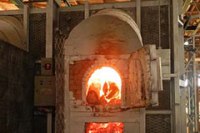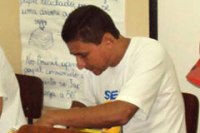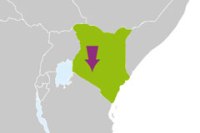This project is situated in the brazilian state Alagoas consists of two red ceramic industries, which use renewable and abundant biomass to operate their kilns.
Bandeira and Capelli are two red ceramic industries in the northeastern state of Alagoas, Brazil, which produce roof tiles and bricks for the local market. Both industries started using biomass to operate their kilns in 2006. In Brazil, traditionally fossil fuels and native wood from local forests are used for thermal energy processes, which cause massive deforestation. As renewable biomasses, the grouping uses coconut husks, sustainable farmed bamboo, sawdust and sugar cane bagasse. The manufacturing plants are located in the Caatinga, a region which covers aproximately 10 percent of Brazil and is home to 930 different fauna species, of which 320 are to be found exclusively in this area.
Deforestation of the local fauna accelerates desertification, thus endangering this unique ecosystem and its biodiversity. By switching to renewable and abundant biomass for producing thermal energy and by introducing new and more efficient production methods, this project avoids an estimated 39,000 tons of CO2-equivalents each year. Another distinctive feature to this project is the additional verification with the Social Carbon Standard. This standard claims the implementation of measures taken to improve the working environment within the project and monitors the realization of these measures on a regular basis.
Additional sustainable benefits of the project:
- Protection and preservation of the biodiversity, especially in the Caatinga
- Reforestation of areas that have been cleared
- Fighting against illiteracy of the employees, daily lectures in Portuguese and Mathematics classes
- Medical and dental care for the employees, construction of public housing
- Active sensibilisation of the local community for environmental issues, e.g. by promoting field trips of local schools and hosting cultural events
| Certification: | Bureau Veritas Certification Holding SAS |
|---|---|
| Type of certification: | Verified Carbon Standard, Social Carbon |
| Total capacity: | 391,000 tons CO2-equivalents |





